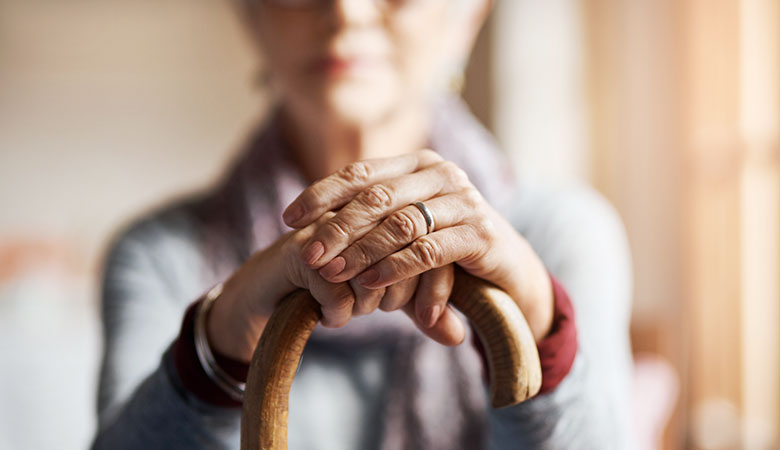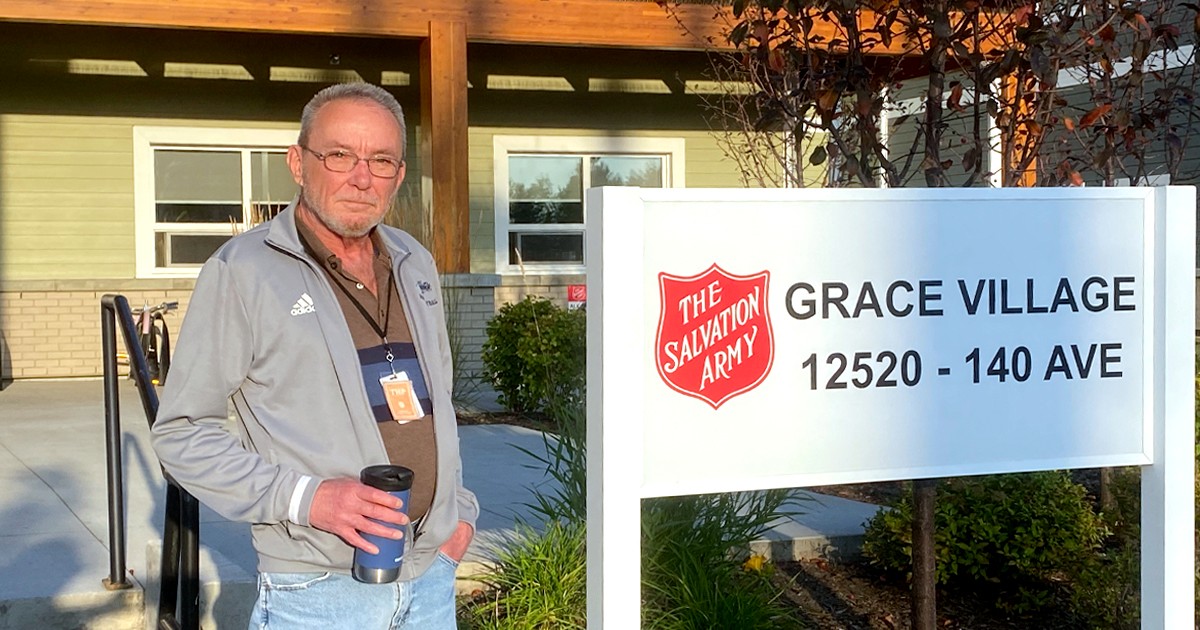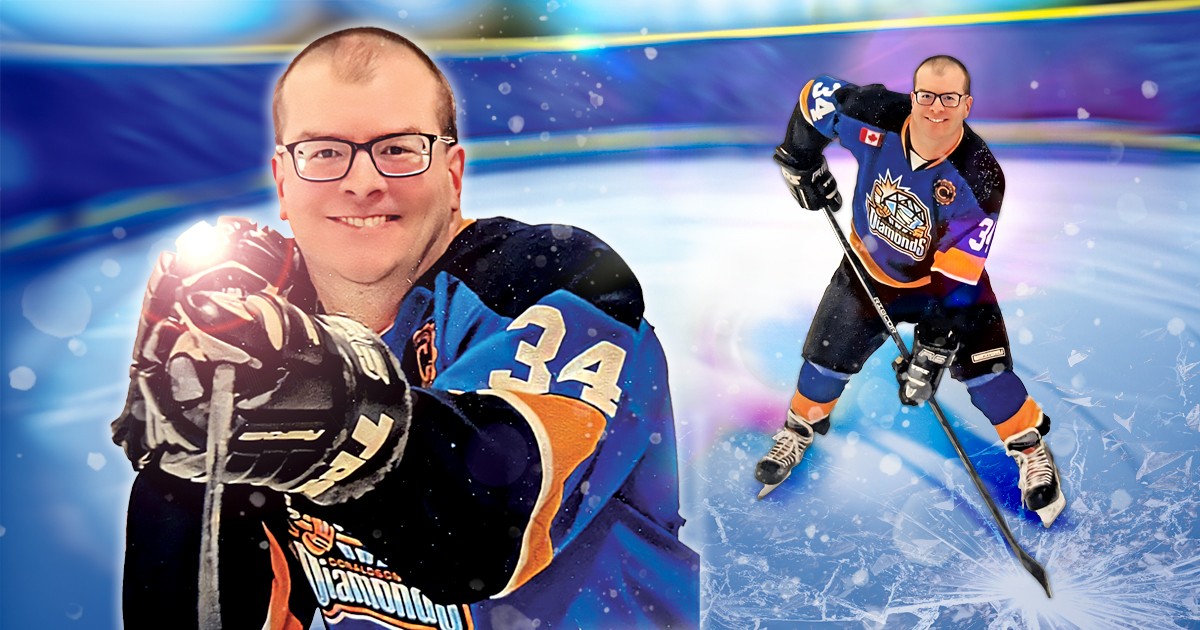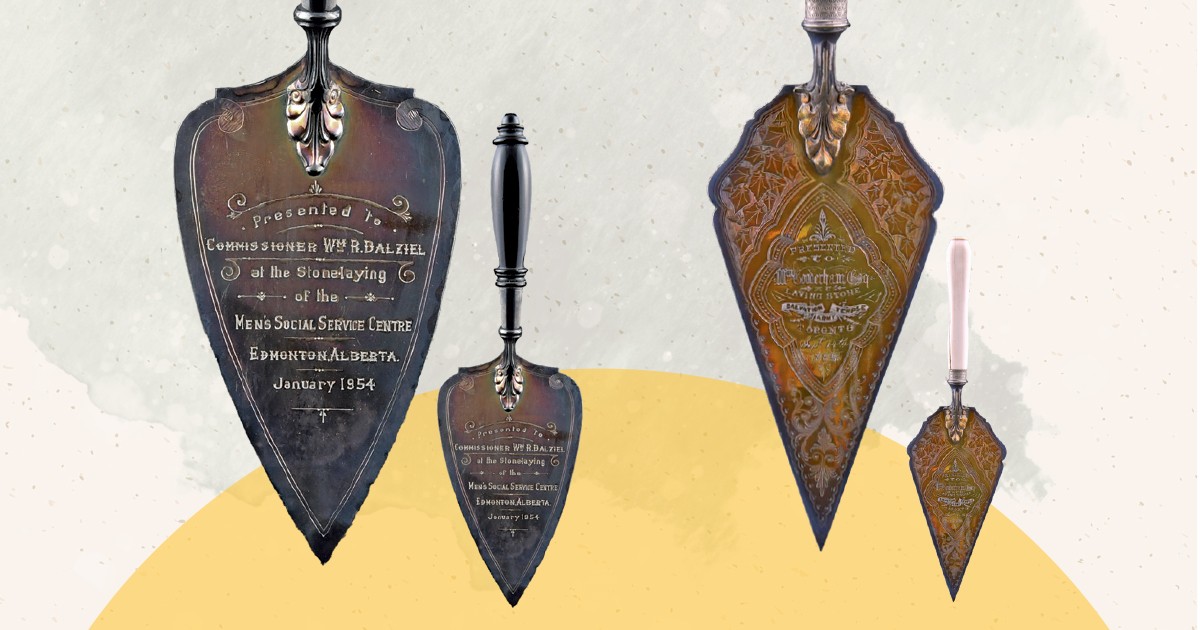With my father’s permission, I’d like to share a bit about his life and disability. At this point, he has had three knee operations: first one knee replaced, then the other, then back to the first one for “revision” surgery. He wasn’t born with a disability, and in his youth played football and rugby, and ran several kilometres every day. But wear and tear, combined with age, resulted in pain, to the point where his knees needed to be replaced.
From day to day, he struggles with mobility and was issued an accessible parking permit. Although he doesn’t need his cane for the distance between car and store, he always takes it with him when he parks in a designated accessible parking space. He has the same disability with his cane as without it, but walking with a cane acts as a sign to onlookers that he is, in fact, disabled and does need that space. It’s more for everyone else’s benefit than his own, until he gets a shopping cart to support him.
When we try to make people prove how disabled they are in public spaces, we take away their power and agency. My grandfather, who was also disabled, was prone to giving people a piece of his mind if he saw someone get out of their car in an accessible spot without any walking aids. Despite trying to explain to him, numerous times, that some people have heart conditions or other invisible illnesses that don’t require a cane, but do require an accessible spot, he never believed it. He, like many, was ready to pounce if he thought someone was cheating the system and taking up space they shouldn’t be using.
Part of the problem is a misunderstanding of terms. Not all blind people are completely blind, so you may see someone who is visually impaired looking at their phone. Not all deaf people are completely deaf, so you may see someone who is hard of hearing at a concert. Not all wheelchair users are completely paralyzed, so you may see someone leave their chair to go on a ride at a theme park. Just because you witness something that seems to disprove a disability doesn’t mean they don’t have a disability. They may have supports, such as leg braces or extra-large print on their phone, that you can’t see.
Not all disabilities are the same, and everyone, with disabilities or not, has abilities that change based on their environment, the type of event and how they are feeling that day. Limited exposure does not paint an accurate picture of someone’s life. I can tolerate taking out the garbage while wearing shorts during the winter, if it’s a 10-second walk to and from my warm house—but that doesn’t mean I go carolling dressed for a Hawaiian vacation.
Although speaking up for people with disabilities might come from a place of love and concern, ultimately, it is up to them to voice their grievances when issues arise. As a non-disabled person, I am aware that people with disabilities can advocate for themselves and require accommodations, not pity. Deaf people, for instance, have a unique language, culture and view of the world, and don’t necessarily feel they are missing anything by not being able to hear. Just because they may need accommodations doesn’t make them any less capable of arguing on their own behalf.
Unless you’re working for social services, the Ministry of Health or the parking authority, it’s not your job to determine how disabled a person is. As bystanders, we are not the gatekeepers of what qualifies as a disability. There are those, however, who thrive on righteous indignation, whether it’s their fight or not. Proverbs 26:17 says, “Like one who grabs a stray dog by the ears is someone who rushes into a quarrel not their own.” Similarly, 1 Thessalonians 4:11 says, “Make it your ambition to lead a quiet life: you should mind your own business.”
We should err on the side of compassion rather than taking offence. It is exhausting having to continuously prove that you exist and belong. On the rare occasion when someone fakes an illness or takes a parking spot they don’t need, it reflects on them and their character. How we choose to respond to others reflects our own.
Darryn Oldford is a senior soldier in Toronto.
From day to day, he struggles with mobility and was issued an accessible parking permit. Although he doesn’t need his cane for the distance between car and store, he always takes it with him when he parks in a designated accessible parking space. He has the same disability with his cane as without it, but walking with a cane acts as a sign to onlookers that he is, in fact, disabled and does need that space. It’s more for everyone else’s benefit than his own, until he gets a shopping cart to support him.
When we try to make people prove how disabled they are in public spaces, we take away their power and agency. My grandfather, who was also disabled, was prone to giving people a piece of his mind if he saw someone get out of their car in an accessible spot without any walking aids. Despite trying to explain to him, numerous times, that some people have heart conditions or other invisible illnesses that don’t require a cane, but do require an accessible spot, he never believed it. He, like many, was ready to pounce if he thought someone was cheating the system and taking up space they shouldn’t be using.
Part of the problem is a misunderstanding of terms. Not all blind people are completely blind, so you may see someone who is visually impaired looking at their phone. Not all deaf people are completely deaf, so you may see someone who is hard of hearing at a concert. Not all wheelchair users are completely paralyzed, so you may see someone leave their chair to go on a ride at a theme park. Just because you witness something that seems to disprove a disability doesn’t mean they don’t have a disability. They may have supports, such as leg braces or extra-large print on their phone, that you can’t see.
Not all disabilities are the same, and everyone, with disabilities or not, has abilities that change based on their environment, the type of event and how they are feeling that day. Limited exposure does not paint an accurate picture of someone’s life. I can tolerate taking out the garbage while wearing shorts during the winter, if it’s a 10-second walk to and from my warm house—but that doesn’t mean I go carolling dressed for a Hawaiian vacation.
Although speaking up for people with disabilities might come from a place of love and concern, ultimately, it is up to them to voice their grievances when issues arise. As a non-disabled person, I am aware that people with disabilities can advocate for themselves and require accommodations, not pity. Deaf people, for instance, have a unique language, culture and view of the world, and don’t necessarily feel they are missing anything by not being able to hear. Just because they may need accommodations doesn’t make them any less capable of arguing on their own behalf.
Unless you’re working for social services, the Ministry of Health or the parking authority, it’s not your job to determine how disabled a person is. As bystanders, we are not the gatekeepers of what qualifies as a disability. There are those, however, who thrive on righteous indignation, whether it’s their fight or not. Proverbs 26:17 says, “Like one who grabs a stray dog by the ears is someone who rushes into a quarrel not their own.” Similarly, 1 Thessalonians 4:11 says, “Make it your ambition to lead a quiet life: you should mind your own business.”
We should err on the side of compassion rather than taking offence. It is exhausting having to continuously prove that you exist and belong. On the rare occasion when someone fakes an illness or takes a parking spot they don’t need, it reflects on them and their character. How we choose to respond to others reflects our own.
Darryn Oldford is a senior soldier in Toronto.










Leave a Comment